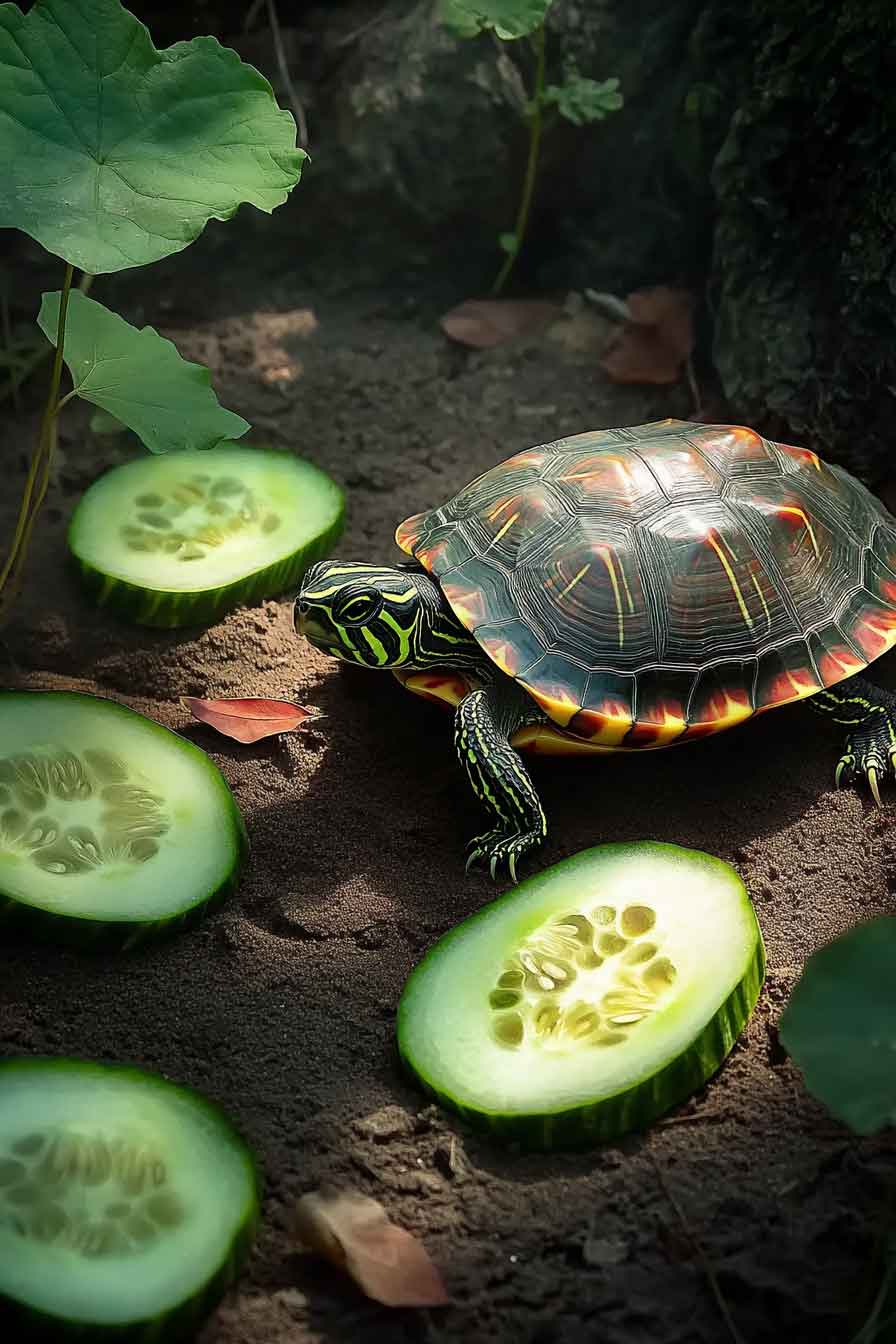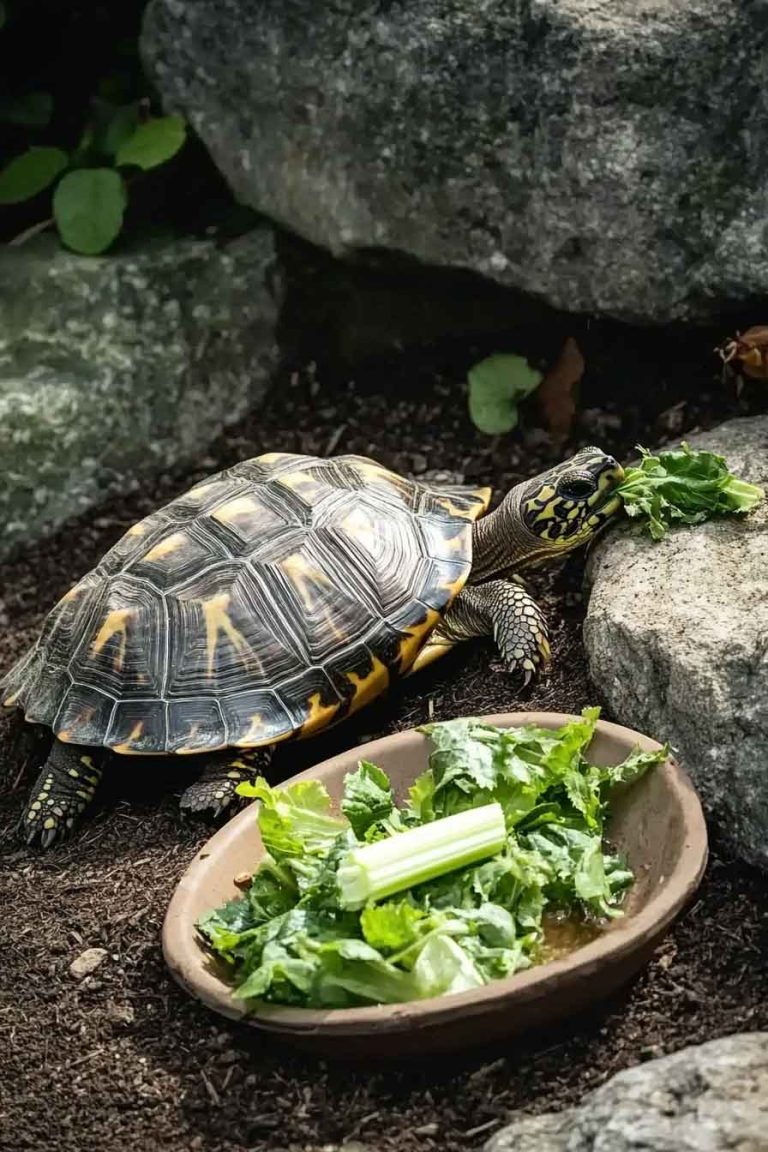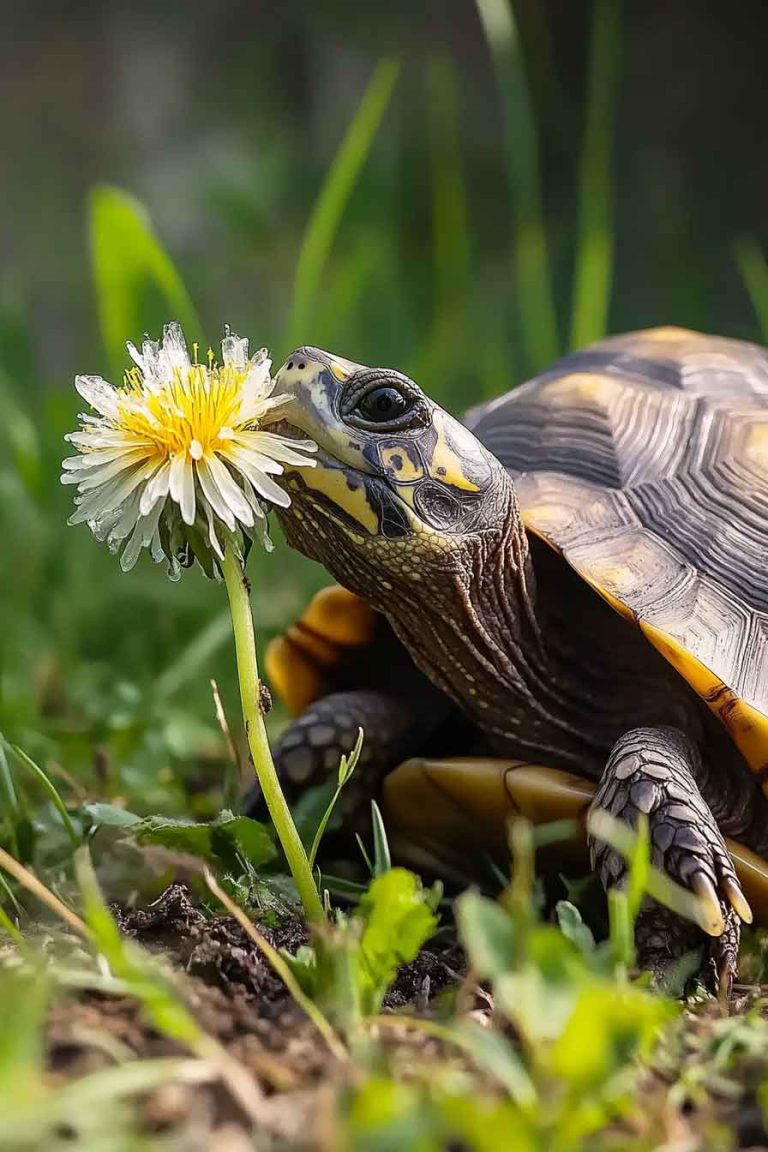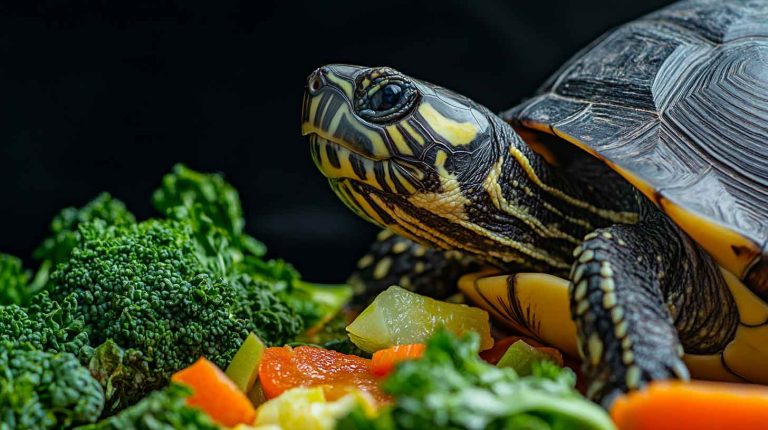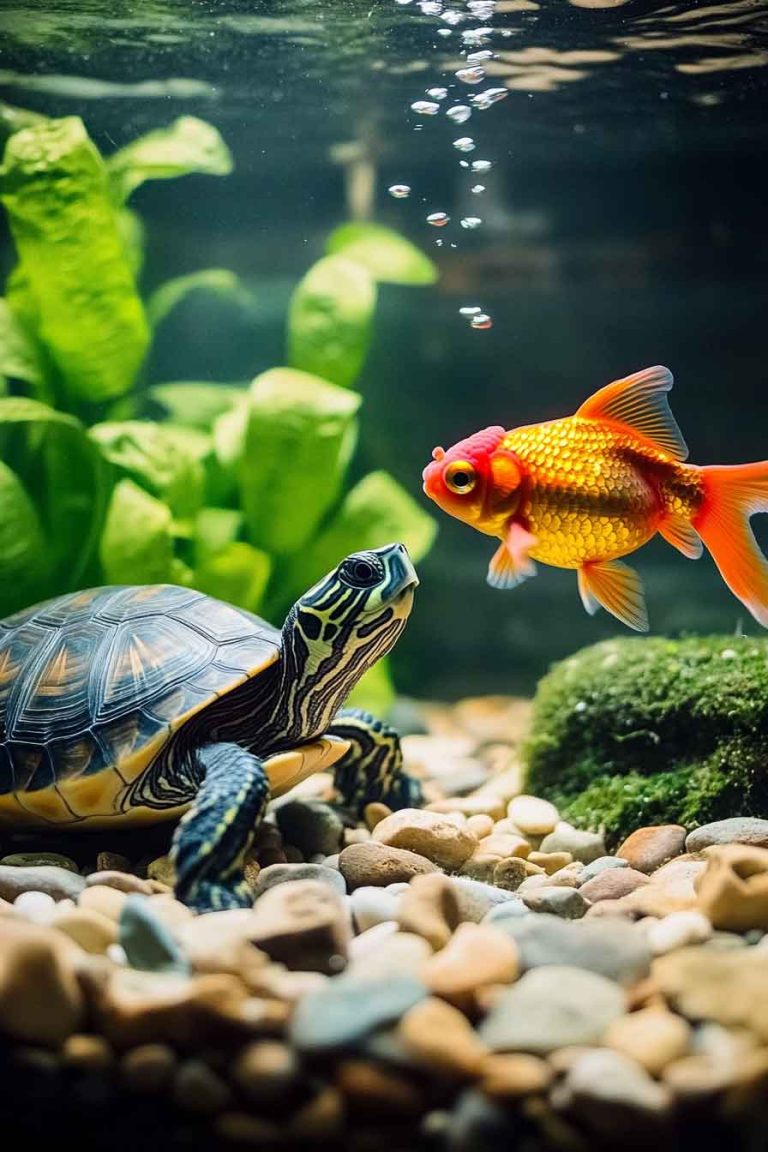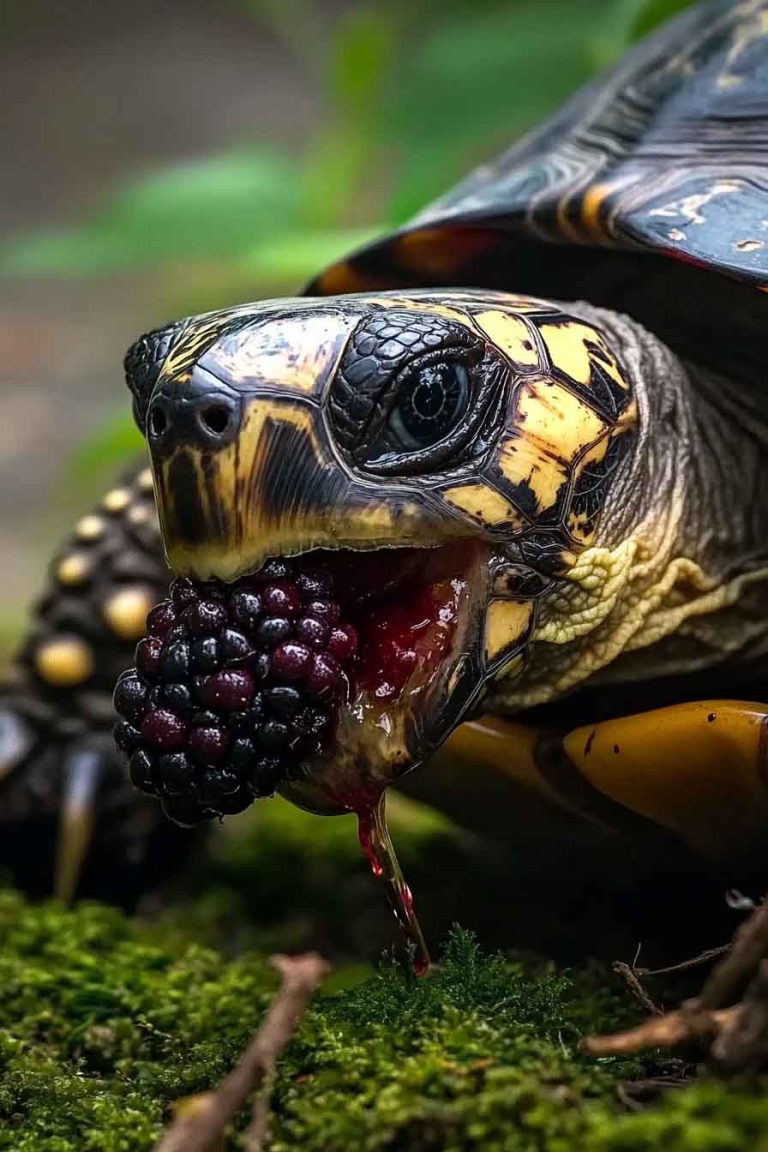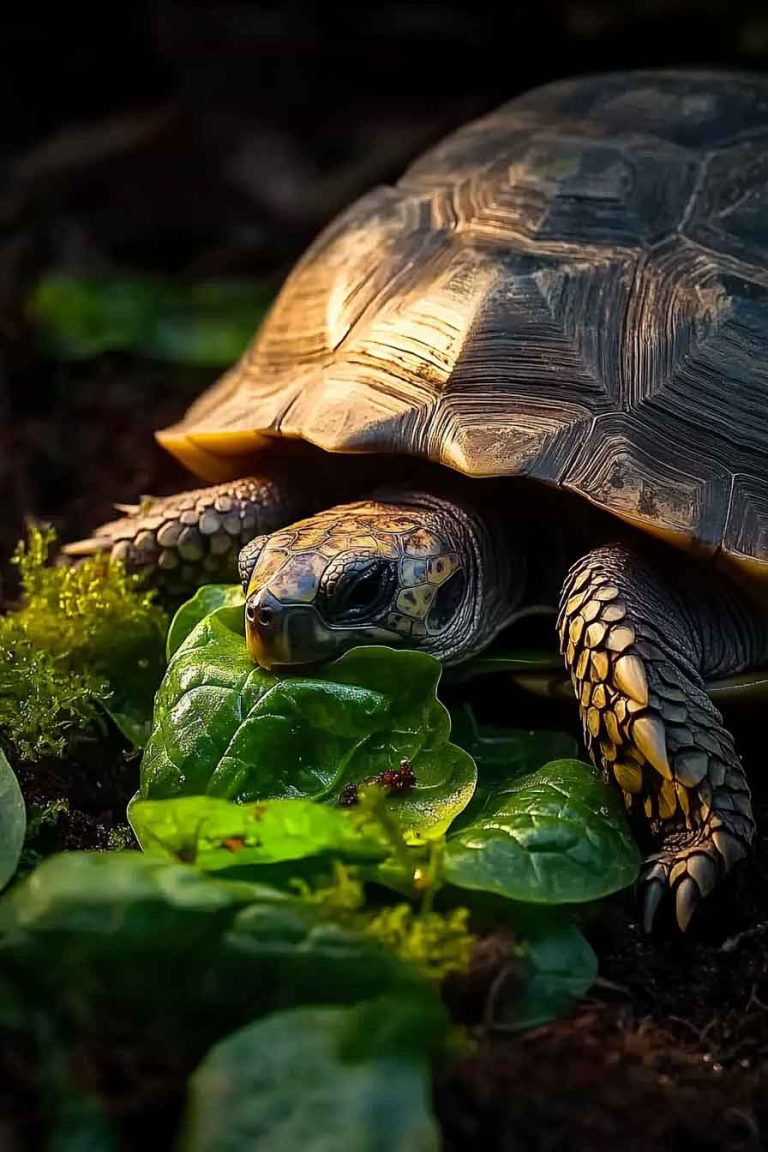Can Turtles Eat Cucumbers? What Every Turtle Owner Should Know
If you’re like me and have a beloved pet turtle, I’m sure you’ve found yourself wondering about sharing your favorite snacks with your shelled companion. It’s completely natural – I mean, who doesn’t want to bond with their pet over food? But when it comes to cucumbers, I’ve noticed there’s quite a debate in the…
If you’re like me and have a beloved pet turtle, I’m sure you’ve found yourself wondering about sharing your favorite snacks with your shelled companion. It’s completely natural – I mean, who doesn’t want to bond with their pet over food? But when it comes to cucumbers, I’ve noticed there’s quite a debate in the turtle community about whether these crunchy green veggies are safe for our reptilian friends.
So, can turtles eat cucumbers? The answer is yes – turtles can eat cucumbers, but with important considerations. Cucumbers are generally safe for most turtle species when given in moderation. However, they’re quite low in nutritional value and high in water content, so I wouldn’t recommend making them a staple in your turtle’s diet.
In this article, I’m going to walk you through everything I’ve learned about feeding cucumbers to turtles. I’ll share the benefits, potential risks, and best practices I’ve discovered through research and experience. Keep reading if you want to make informed decisions about your turtle’s diet.
Can You Feed Cucumbers To Your Pet Turtle?
The short answer is – yes, but with caution. Since cucumbers are vegetables, many turtle owners automatically assume they’re perfectly healthy for their pets. While cucumbers aren’t toxic like some other foods, I’ve learned they’re not exactly nutritional powerhouses either.
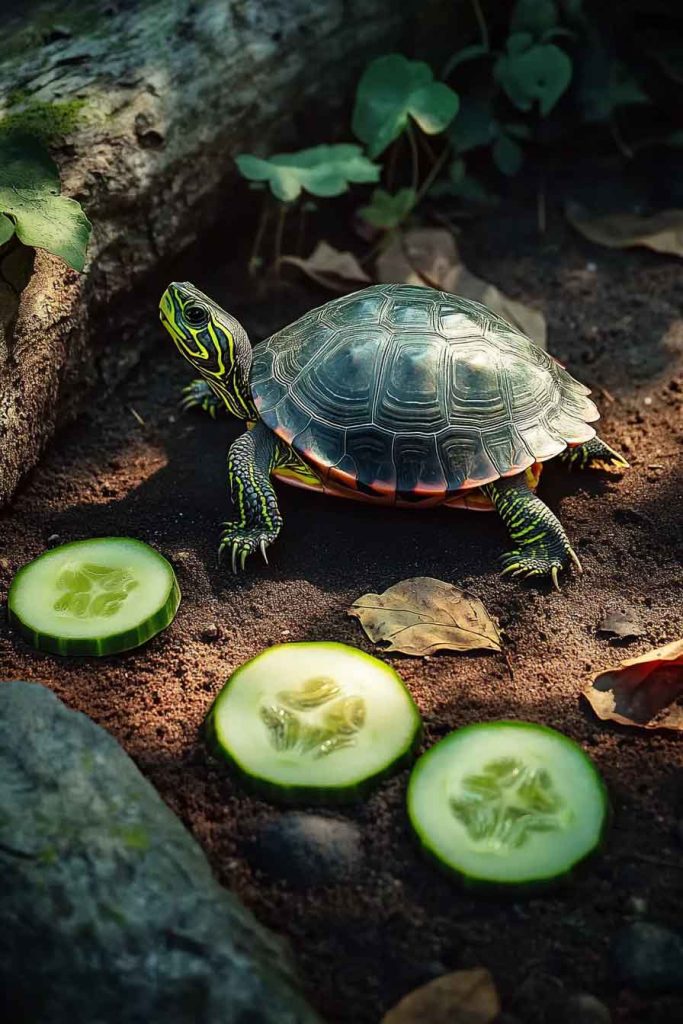
Turtles have specific dietary needs that require a balanced approach to nutrition. Let me break down what you’ll find in 100 grams of cucumber:
Water: 95.23 g Carbohydrates: 3.63 g Sugar: 1.67 g Protein: 0.65 g Calcium: 16 mg Phosphorus: 24 mg Vitamin K: 16.4 mcg Vitamin C: 2.8 mg Potassium: 147 mg Magnesium: 13 mg Fiber: 0.5 g
Looking at this nutritional profile, I can see why cucumbers are a topic of debate. On one hand, they’re low in harmful elements and contain some beneficial nutrients. On the other hand, they’re mostly water with minimal nutritional density.
The calcium to phosphorus ratio in cucumbers is approximately 1:1.5, which isn’t ideal for turtles. I always recommend foods with a 2:1 calcium to phosphorus ratio for optimal shell and bone health.
Do Turtles Like Cucumbers?
In my experience, most turtles actually enjoy cucumbers! The crunchy texture and mild flavor seem to appeal to many species. I’ve watched turtles eagerly munch on cucumber slices, and they rarely show signs of distaste.
However, just because turtles like something doesn’t mean it’s the best choice for their health. Think of it like candy for kids – they love it, but it shouldn’t be their main source of nutrition.
Health Benefits of Cucumbers for Turtles
While cucumbers aren’t nutritional superstars, they do offer some benefits when given appropriately:
Hydration Support
The high water content (over 95%) can help with hydration, especially during warmer months. This is particularly beneficial for terrestrial turtle species that might not drink water as readily as aquatic species.
Low-Calorie Treat
Cucumbers are extremely low in calories, making them a good occasional treat that won’t contribute to obesity in pet turtles.
Vitamin K Content
Cucumbers contain vitamin K, which plays a role in blood clotting and bone health. While the amount isn’t massive, every bit helps.
Easy Digestion
The soft flesh and high water content make cucumbers relatively easy for turtles to digest when given in appropriate portions.
Health Risks and Concerns
Despite being generally safe, there are several concerns I want you to be aware of:
Nutritional Deficiency
My biggest concern with cucumbers is their lack of substantial nutrition. If cucumbers make up too large a portion of your turtle’s diet, they could develop nutritional deficiencies over time.
Calcium Imbalance
The phosphorus content being higher than calcium can contribute to calcium deficiency if cucumbers are fed too frequently. This can lead to metabolic bone disease, which causes weak shells and bones.
Pesticide Exposure
Commercial cucumbers often contain pesticide residues on their skin. I always recommend thoroughly washing cucumbers or choosing organic varieties when possible.
Digestive Issues
While rare, some turtles might experience loose stools if they consume too much cucumber due to the high water and fiber content.
How Much Cucumber Should Turtles Eat?
Based on my research and consultation with reptile veterinarians, I recommend treating cucumbers as an occasional snack rather than a dietary staple. Here’s my guideline:
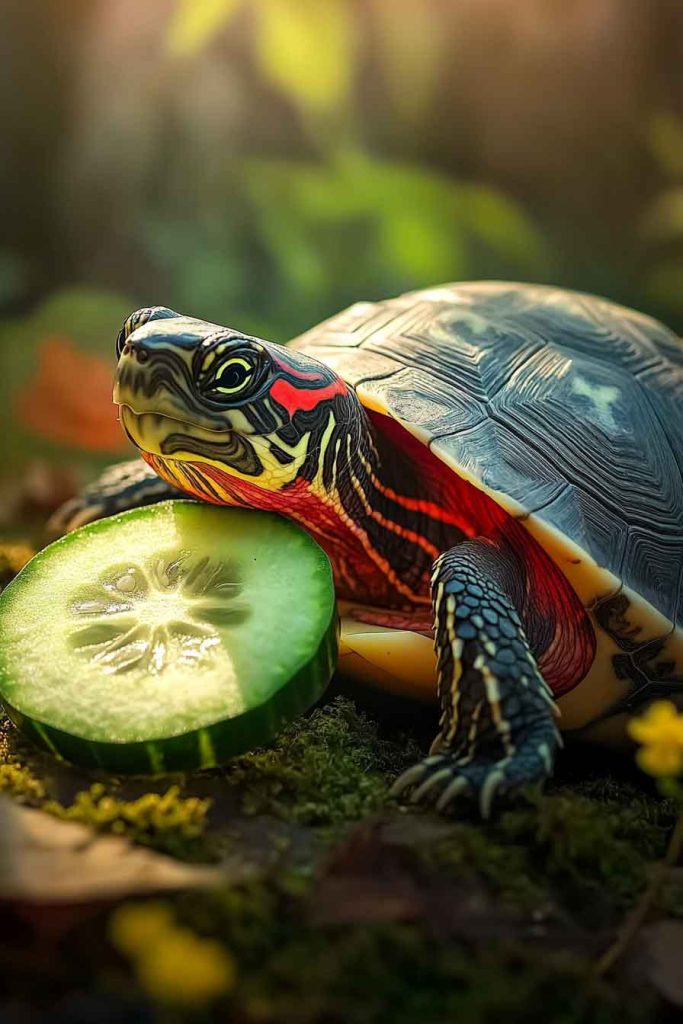
- Adult turtles: A few small pieces (about 1-2 cubic inches) once or twice per week
- Juvenile turtles: Even smaller portions, maybe once per week
- Baby turtles: I’d avoid cucumbers entirely until they’re more mature
Remember, vegetables should only make up about 10-15% of an omnivorous turtle’s diet, with the majority being high-quality commercial turtle pellets and appropriate protein sources.
Can You Feed Cucumbers to Baby Turtles?
I generally don’t recommend feeding cucumbers to baby turtles. Here’s why:
Baby turtles have much higher nutritional requirements for proper growth and development. Their small stomachs need to be filled with nutrient-dense foods, not water-heavy vegetables like cucumbers.
Young turtles need more protein and calcium for proper shell and bone development. Filling up on cucumbers could prevent them from eating more nutritious foods they desperately need.
If you really want to offer vegetables to baby turtles, I’d suggest more nutritious options like dark leafy greens or squash.
Best Practices for Feeding Cucumbers to Turtles
If you decide to offer cucumbers to your turtle, here are my recommended best practices:
Preparation Tips
- Wash thoroughly: Always wash cucumbers under running water to remove pesticide residues
- Remove seeds: While not toxic, large seeds can be a choking hazard
- Cut appropriately: Slice into small, manageable pieces based on your turtle’s size
- Fresh only: Never offer wilted or spoiled cucumber pieces
Serving Suggestions
- Mix small cucumber pieces with more nutritious vegetables
- Use as a occasional treat, not a meal replacement
- Remove any uneaten pieces within a few hours to prevent spoilage
- Monitor your turtle’s reaction and adjust portions accordingly
Alternative Vegetables for Better Nutrition
Instead of relying on cucumbers, I recommend these more nutritious vegetable options:
- Dark leafy greens: Collard greens, dandelion greens, mustard greens
- Squash varieties: Butternut squash, acorn squash, yellow squash
- Bell peppers: High in vitamin C and colorful variety
- Carrots: Good source of beta-carotene (in moderation)
Species-Specific Considerations
Can Box Turtles Eat Cucumbers?
Box turtles are omnivores with a varied diet, and they can safely eat small amounts of cucumber. However, wild box turtles rarely encounter cucumbers, so I consider them an unnatural treat that should be given sparingly.
Can Red-Eared Slider Turtles Eat Cucumbers?
Red-eared sliders can eat cucumbers in small amounts. Since they’re semi-aquatic and have different dietary needs than terrestrial species, I recommend focusing more on aquatic plants and appropriate commercial diets.
Can Painted Turtles Eat Cucumbers?
Painted turtles can have cucumber occasionally, but like other aquatic species, their diet should primarily consist of aquatic vegetation, insects, and high-quality pellets.
What to Do If Your Turtle Eats Too Much Cucumber
If your turtle accidentally consumes a large amount of cucumber, don’t panic. Monitor them for:
- Changes in stool consistency
- Reduced appetite for regular food
- Unusual behavior or lethargy
In most cases, they’ll be fine, but contact a reptile veterinarian if you notice any concerning symptoms lasting more than 24-48 hours.
My Final Thoughts on the Cucumber Debate
After researching this topic extensively, my position is that cucumbers can be part of a turtle’s diet, but they should never be a significant component. Think of them as the equivalent of giving your turtle a glass of water with a tiny bit of nutrition mixed in.
I believe the “great cucumber debate” exists because people see conflicting information online. Some sources say never feed cucumbers, while others suggest they’re perfectly fine. The truth, as usual, lies somewhere in the middle.
If you want to give your turtle the best possible diet, focus on variety and nutritional density. Use cucumbers as an occasional treat if your turtle enjoys them, but don’t feel guilty about skipping them entirely in favor of more nutritious options.
Frequently Asked Questions (FAQs)
Can turtles eat cucumber skin? Yes, turtles can eat cucumber skin, but I recommend washing it thoroughly first to remove any pesticide residues. Organic cucumbers are preferable if you plan to include the skin.
Are pickled cucumbers safe for turtles? Absolutely not. Pickled cucumbers contain salt, vinegar, and other additives that are harmful to turtles. Stick to fresh, raw cucumbers only.
Can turtles eat cucumber seeds? Small cucumber seeds are generally safe, but I recommend removing larger seeds to prevent choking hazards, especially for smaller turtle species.
How often can I give my turtle cucumber? I recommend no more than once or twice per week, and only in small portions. Think of it as an occasional treat, not a regular meal component.
What if my turtle refuses to eat cucumber? That’s perfectly fine! Not all turtles have the same preferences, and cucumber isn’t an essential part of their diet. Focus on offering a variety of more nutritious vegetables instead.
Conclusion
The cucumber debate in the turtle community doesn’t have to be complicated. While cucumbers aren’t harmful to most turtles when given in moderation, they’re not nutritional powerhouses either. I believe in taking a balanced approach – if your turtle enjoys cucumber and you want to offer it as an occasional treat, that’s fine. Just don’t make it a dietary staple.
Remember, the best diet for your turtle is one that’s varied, nutritionally balanced, and appropriate for their species and life stage. When in doubt, consult with a veterinarian who has experience with reptiles. They can provide personalized advice based on your specific turtle’s needs.
I hope this article has helped clarify the cucumber question for you. Your turtle is lucky to have an owner who cares enough to research their dietary needs!

